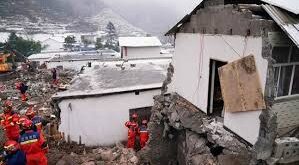Harare Mayor Jacob Mafume has disclosed critical concerns over the city’s surging electricity charges amidst an ongoing depreciation of the Zimbabwean Dollar (ZWL).
With the end of the quarter report painting a grim picture, electricity emerges as a substantial burden on the city’s fiscal health, with a monthly accrual of close to ZWL$1.9 billion.
“Accrued expenditure for electricity as of 31 March 2023 amounts to ZWL$8 billion,” said Mafume, unveiling the financial strain that the city is experiencing.
A significant portion of this, amounting to ZWL$450 million, is attributed to the hostels – an expenditure that the mayor criticises as unsustainable.
This leads to a proposition for residents to install prepaid electricity as a potential solution.
Nevertheless, the issue goes beyond mere cost containment.
It extends to a negotiation with the Zimbabwe Electricity Supply Authority (ZESA) for concessionary tariffs, given the nature of the city’s operations.
“Our activities are merely public services, we do not operate on a profit-making basis,” noted Mafume, driving home the need for a compromise from ZESA.
Highlighting further complications, the report also exposes that ZESA owes the City of Harare a substantial ZWL$900 million in royalties, a debt that has been in arrears since 2009.
This revelation places an additional layer of complexity on the city’s financial woes and inevitably raises questions about ZESA’s accountability.
Moreover, Mafume decries the astronomical interest of 200.5 percent per annum being charged on outstanding debt.
As he points out: “Our average monthly bill is ZWL$1.9 billion and interest is ZWL$1.2 billion,” emphasising the gravity of the interest burden and its impact on the city’s budget.
As Harare’s fiscal health takes a hit, the mayor is not without alternative proposals.
Mafume envisions a pivot towards green energy, indicating an intention to partner in the development of solar farms to power water and sewer treatment plants.
While this move is commendable in terms of sustainability, it is not without its questions regarding the viability of such a project amidst the city’s current financial predicament.
The complexity of Harare’s situation is underscored by the appeal to exempt the city from the rural electrification levy.
“We seek exemption from payment of the rural electrification levy on all our accounts,” said Mafume pointing out that Harare’s residents, the primary customers, are already charged this levy.
With the current trajectory painting a bleak financial picture for the city of Harare, Mafume’s report stands as an urgent call for assistance, innovative thinking, and robust strategy.
In these trying times, the need for accountability, transparency, and astute management is more critical than ever. ZimSeen
 Nhau News Online News that is accurate, reliable, trustworthy!!
Nhau News Online News that is accurate, reliable, trustworthy!!
